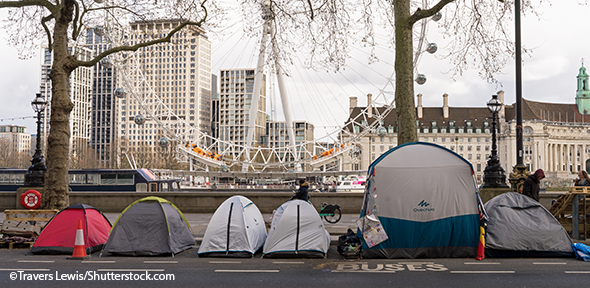
Promoting health equity through research
Context
People in the least well-off areas of the UK live shorter lives than their peers in the most affluent areas, with a gap that can exceed 10 years. These gaps result from inequalities in the building blocks of health - such as education, working and living conditions - and have a cumulative effect over the course of people’s lives.
Despite a universal healthcare system that is free at the point of use, inequalities also persist in access, diagnosis, and treatment. Overlapping with inequalities in resources, skills, and social support, they lead to a disproportionate burden on the health of disadvantaged individuals and groups.
This excess in illness, apart from devastating people’s lives, has an immense cost for the NHS. Inequalities in hospital admissions alone have an estimated cost of £4.8 billion year – almost a fifth of the overall NHS hospital budget.
Health inequalities do not solely exist across income groups and social class, neither do they concern only disadvantaged groups. People’s experience, social position and health is simultaneously shaped by the combination of multiple dimensions including, though not exclusively, their ethnicity, race, age, gender, sexuality, and disability.
Therefore, while people who experience multiple vulnerabilities (e.g., rough sleepers, street-based sex workers, refugees, and gypsy, Roma, traveller communities) are those who also experience some of the worst health outcomes in society, health inequalities affect everyone according to their position within the multiple and intersecting social hierarchies beyond the socio-economic.
What we do
We believe that the best chance of reducing health inequalities is to work together – across academic disciplines, and between academics, policy makers, and public health practitioners.
Our approach addresses the interaction of social, historical, political, geographical and biological factors that create and sustain health inequalities. By unravelling the complexity of inequality producing processes, we aim to effectively evaluate interventions and advocate for evidence-based solutions. By promoting collaboration between people with an interest in inequalities, we aim to build networks, bring new perspectives and generate research that is inclusive, scientifically robust and socially relevant.
Research projects:
- Interventions which increase or decrease inequalities in General Practice (EQUALISE): A study that explores which interventions and aspects of routine general practice increase or decrease inequalities for the main drivers of inequalities in life expectancy.
-
Impact of Allied Health Professionals on health inequalities: A rapid review to examine the impact of AHPs’ practice on health inequalities.
Related NIHR SPHR Cambridge research projects:
- Unpacking levelling up and pandemic recovery – what are local authorities doing? More information.
- Living with housing insecurity: exploring local authority strategies for reducing housing insecurity among families with children.
More information. - The role of socioeconomic position in adolescent physical activity. More information
Key publications:
A full list of publications on Health Inequalities is available here.
- The 10 steps for acting on health inequalities (2023) Kelly MP, Carr A. Public Healtlh in Practice.Dec; 6: 100422.
- Evidence supporting a cross-government strategy to address health inequalities. CPH Policy brief. 2023
- Rethinking health for all: a new vision for sustainable and achievable progress. CPH Policy brief. 2022
- Inequalities in mental health: predictive processing and social life (2021) Kelly MP, Brayne C, Kinmonth AL et al. Current Opinion in Psychiatry; 34(2)171-6.
- Making the case for prevention, A commissioned report by Cambridge Public Health for the Health Foundation. (2021) Ford J, Ekeke N, Lahiri A, Kelly MP.



